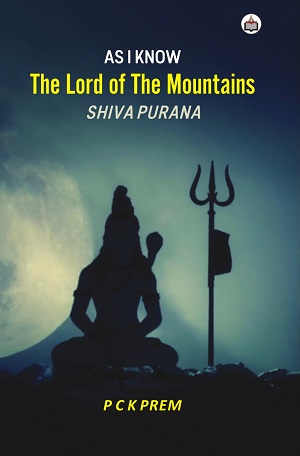Mar 04, 2026
Mar 04, 2026
by P C K Prem
As I Know: The Lord of the Mountains – Shiv Purana: 158
Meditation’s glory and magnificence, the principles of righteous and virtuous life and existence…focus on visaya, savisaya – sabeeja and nirvisaya-nirbeeja
 Monk Upamanyu now speaks about meditation and its splendor, the doctrine or dharma of yoga and the implication of lord’s devotion. To sacrifice life for the lord or to abandon life in the region of Shiva, grants moksa. Another important but relevant aspect is that initially a stable mind undertakes meditation on the gross and moves on to the subtle form – a growth quite natural if meditation continues with faith. If a devotee concentrates on Shiva, he attains siddhi even if the fixing of mind is on other forms or images, the devotee thinks of Shiva. A devotee can meditate on the image or form where he achieves stability of mind.
Monk Upamanyu now speaks about meditation and its splendor, the doctrine or dharma of yoga and the implication of lord’s devotion. To sacrifice life for the lord or to abandon life in the region of Shiva, grants moksa. Another important but relevant aspect is that initially a stable mind undertakes meditation on the gross and moves on to the subtle form – a growth quite natural if meditation continues with faith. If a devotee concentrates on Shiva, he attains siddhi even if the fixing of mind is on other forms or images, the devotee thinks of Shiva. A devotee can meditate on the image or form where he achieves stability of mind.
Thinkers believe that one cannot meditate in a vacuum or without an object. He means to say that one cannot have Nirvisaya meditation or bhakti. However, when a devotee forms an intellectual image or murti like the object in meditation it also functions.
A very thin distinction exists between visaya or savisaya and nirvisaya meditation. One is gross and the other is subtle. Meditation on the gross slowly leads a man to the subtle, a path to yoga. It means savisaya meditation has a definite form and nirvisaya is formless – also called nirbeeja and sabeeja. Briefly, it is a journey in meditation (dhyana) from sabeeja or savisaya to nirbeeja or nirvisaya and both are fruit bearing in the end because sabeeja bhakti turns into nirbeeja bhakti. Victory over misfortunes or suffering or calamities grants peace.
Destruction of inner and outer ignorance is prashanti – extreme joy, a feeling of intense peace and serenity. An illumination comes and it is healthy self-belief, a blessed gift and sweet food given after prayers or worship called prasada, and so these cause internal and external delight. A man of bhakti ought to know the man who is engaged in bhakti, should understand the quantum of meditation, the object of meditation and its objective (benefit of reward or fruit). Such a man, the wise men say, is a man of faith, knowledge and detachment and now, the soul is in supreme ecstatic frame of mind.
Dyana – contemplation or reflection on Shiva with faith and quietness even a little bit with some yogic practice suppresses sins or fierce thoughts. Intellectual meditation is Dhyeya, the lord and the experience and the ideal anima is the fruit of devotion on Shiva – a source of joy and salvation. Earthly existence is transitory and only a man of meditation, who is also a source of knowledge can go beyond. A sinless devotee moves on to the path of knowledge and meditation and this attainment burns the propitious and the ominous like the little lamp that destroys darkness. A little practice in yoga destroys sins of a man devoted to the lord and thus, the benefits of yoga are limitless.
Meditation is tirtha, tapa and yajna and a man should meditate to attain liberation. Devotees of Shiva or yogis engaged in meditation on Shiva sanctify the environment and the living beings where they live. An intelligent man abandons worldly activities and engages himself in bhakti of Shiva and all the worldly pleasures appear insignificant or mere garbage. To abandon or sacrifice life, to observe fast or to consign mortal body to the fire liberates a man. A devotee, an ailing or a sick man, who meditates on lord, ultimately gets liberation. Devotees and others get benefits of devotion for generations.
07-Sep-2024
More by : P C K Prem

|
Sir, Interesting! In which category will a meditation fall when the meditator simply witnesses what is happening around without either identification or participation? Is it nirviSaya or viSaya? |